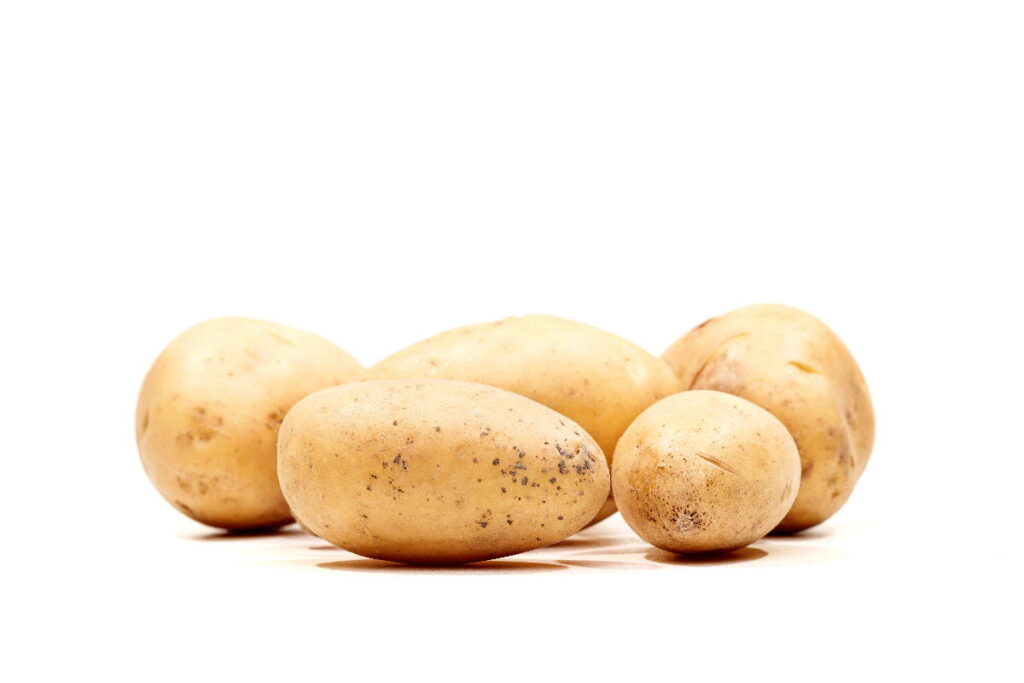Potatoes and composting have an interesting relationship. You can compost potatoes, and when it all works out, there is no problem. They will compost fine. There are a few unique considerations, though, that you want to bear in mind before you start tossing tubers in your compost pile.
Some Considerations Before Creating Potato Compost
Here are the major considerations of composting potatoes. You want to bear these in mind before you start tossing potatoes into your compost pile.
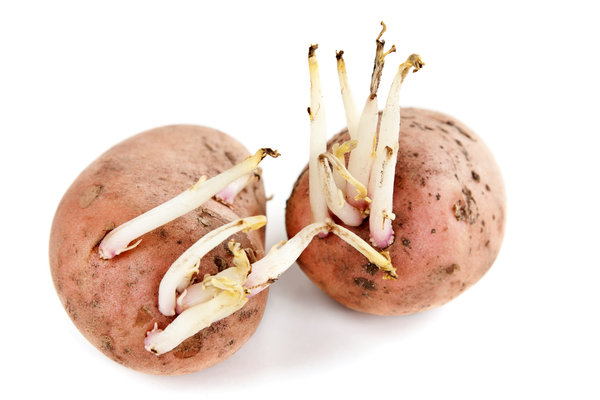
Potatoes Will Grow in Compost
Like onions, potatoes will sprout in the fertile environment of compost. If you want to grow potatoes, this is a great strategy, but you aren’t composting them.
Cutting them into smaller pieces will help to avoid this problem.
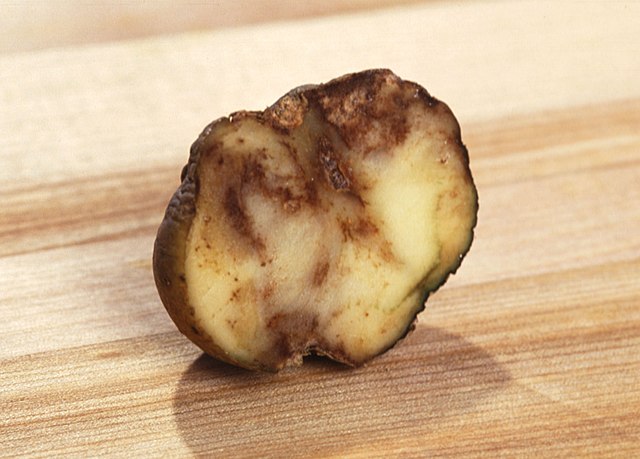
Potato Blight – You Don’t Want it In Your Garden
Potatoes are subject to something called potato blight. This is a fungus that will destroy an entire crop of potatoes. It led to the famous Irish potato famine in the 1840s. It causes potatoes to rot and spreads easily.
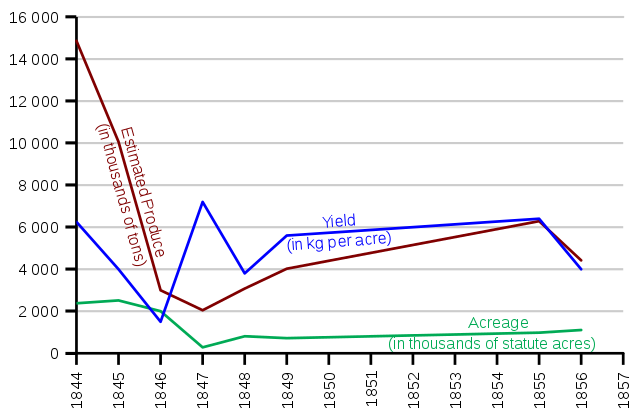
In fact, it doesn’t just spread to potatoes it can spread to other crops like tomatoes, peppers, and nightshade. It’s a fungus so it will survive composting. You don’t want it.
It’s pretty easy to recognize. When you cut open the potato, if it has brown spots, mold, or rot, you don’t want to add it to your compost pile. The problem is that this basically leaves perfectly good potatoes and it doesn’t make sense to compost those.
Potatoes and Vermicomposting
If you’re composting with worms, they aren’t big potato fans (don’t want the starches to cause them to put on pounds). Worms stay thin by avoiding potatoes. So, they won’t generally eat the potatoes, leaving them to rot in your compost bin. That said, adding peels and scraps generally isn’t a big deal. They may not compost quickly, and the worms may not eat them but add in moderation, we have found them to generally be okay with vermicomposting.
How to Compost Potatoes
While you can compost potatoes, you want to be very careful not to add blighted potatoes to your compost. In general, this will leave you with few options except for the remains after cooking. Blighted potatoes, which look like they have a fungus or rot on them, can spread the blight into your garden.
You want to cut up any potatoes and avoid any potatoes with brown spots, fungus, or rot in the middle. Take that part out and throw it away. It’s very bad for many plants, and you just want to avoid it.
You want to add any potatoes to the middle of your compost pile. They tend to smell as they rot, attracting animals to your compost pile.
As they compost, your potatoes may start to sprout. After all, Mark Whatney was able to grow potatoes on Mars. Mars doesn’t grow anything. Add potatoes to the fertile base of your compost, and they are likely to sprout, so you will need to pull up those plants. Scraps and peels are usually okay (seeing a pattern here?)
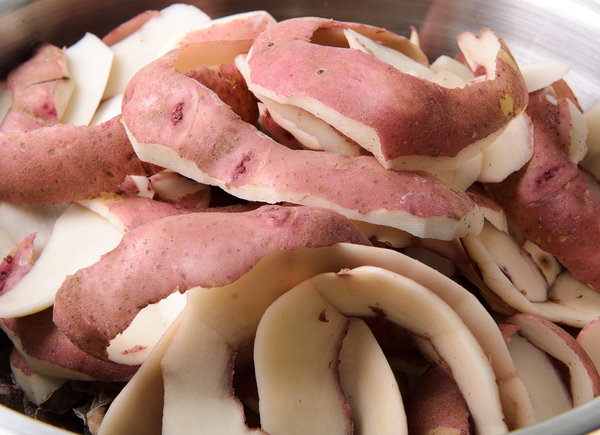
Can You Compost Potato Peels?
Potato peels (assuming there isn’t any rot or mold on them) are great to add to your compost. These pose no problem at all. Scraps of potatoes, with the same caveats, are just fine too.
Can You Compost Cooked Potatoes?
Yes. Ensure they haven’t been combined with animal products, like butter, milk, or other dairy products.
Can I Compost Potatoes?
Technically, you can, but you generally don’t want to unless it’s potato peels or scraps. The types of potatoes that you would normally want to compost are the ones that might have blight which could then be spread to the rest of your garden and even other crops.
Better just to avoid it.
